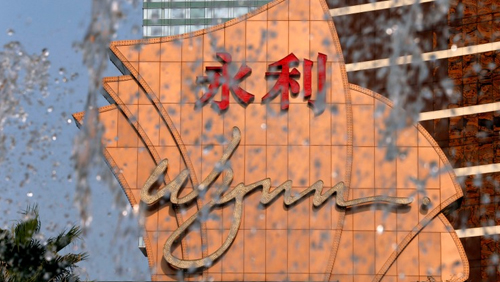U.S. casino operator Wynn Resorts Ltd. and Japan-listed gambling operator Universal Entertainment Corp. have agreed to let bygones be bygones—to the tune of $2.4 billion.
 In a disclosure to the Nasdaq exchange on Thursday, Wynn Resorts announced that it had settled a stock redemption dispute with Universal and its unit Aruze USA Inc. that stemmed from former Universal boss Kazuo Okada’s ouster from Wynn in 2012.
In a disclosure to the Nasdaq exchange on Thursday, Wynn Resorts announced that it had settled a stock redemption dispute with Universal and its unit Aruze USA Inc. that stemmed from former Universal boss Kazuo Okada’s ouster from Wynn in 2012.
The settlement also ends the dispute between Universal Entertainment and Aruze USA against Wynn Macau in Macau.
Financial analysts, however, noted that the $2.4 billion was lower than the market’s expectations.
“The settlement provides for the parties to the agreement to dismiss all litigation between Universal Entertainment and Aruze USA, and Wynn Resorts, its then-directors and executives with respect to the redemption,” the company said in a statement.
Aruze, for its part, has agreed to distance itself as a party to the Amended and Restated Stockholders Agreement between Universal Entertainment’s subsidiary Aruze USA, Steve Wynn and Elaine P. Wynn. Universal’s U.S. subsidiary also agreed not to assert any claims or rights under the Stockholders Agreement.
The public fallout between the two self-made tycoons stemmed from Okada’s decision to sue Wynn for blocking access to financial documents related to a $135-million donation by Wynn Resorts to the University of Macau.
Each claimed the other made improper payments to foreign gaming regulators in a bid to win favor in their respective Macau and Philippine markets, and the acrimony has attracted the attention of legal regulators, investors and analysts worldwide.
Wynn claimed that Okada went against a board decision to pursue a property in the Philippines, making him a direct competitor.
In 2012, Wynn ousted Okada from its board for “unacceptable conduct” involving alleged corruption in the Philippines.
Last year, Universal launched a probe against Okada due to suspicions that certain directors of the Company illegally outflowed approximately JPY2 billion from a subsidiary without going through proper internal decision-making process.
Okada was removed from his post via a boardroom coup after it was discovered that the Japanese casino mogul committed three fraudulent acts for his personal gain.